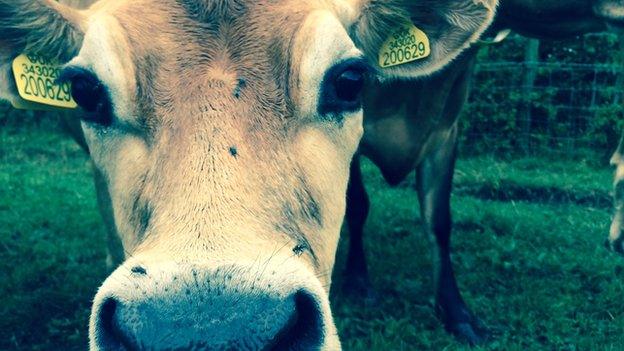Milk price row: Farmers and ministers in 'productive' talks
- Published
Four supermarket chains have agreed to pay milk farmers a minimum price
Farming leaders and ministers say they have held "productive" talks on the future of dairy farming in the UK following protests over milk prices.
Ministers met farming representatives in London, in the wake of dozens of protests in recent weeks.
Environment Secretary Liz Truss said she wanted better labelling of British produce in supermarkets.
The National Farmers' Union said the government was sending the "right messages" but protests would continue.
It said farmers were still "desperate".
NFU president Meurig Raymond said he was hopeful minsters would be "talking to everyone in the supply chain" to promote British produce in the supermarkets, and to "come up with fairer contracts".
Ms Truss described the meeting as "helpful and productive".
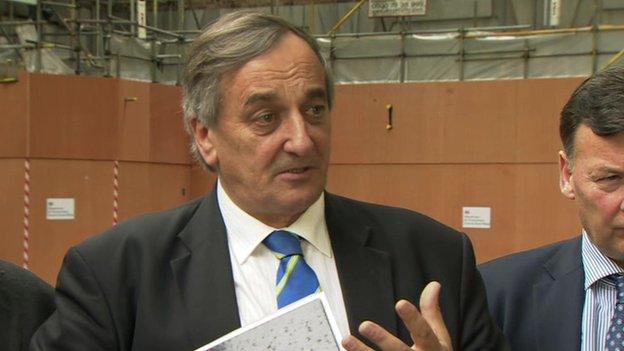
NFU president Meurig Raymond said the meeting lasted a lot longer than the one-hour slot it had been scheduled for
"It was an encouraging meeting and I believe we can help build stronger foundations that give the industry the long-term stability and commercial opportunities it needs to manage global volatility," she said.
Ms Truss said the Department for Environment, Food and Rural Affairs would be putting together a working group "to talk to supermarkets and other providers about how we can get a better branding and better labelling of those [British] products".
Farmers say a reduction in global demand for milk has led to an oversupply in the UK, which has in turn seen prices plummet.
Scottish Rural Affairs Secretary Richard Lochhead said this was a "global issue" and there must be "urgent action at a Scottish, UK and EU level".
But he also called on the food industry to "step up to the plate and support farmers in their hour of need".
Monday's talks follow demonstrations which have seen farmers bringing cattle into supermarkets and buying up stocks of milk from store shelves before giving it away for free.

Why has the price of milk fallen?
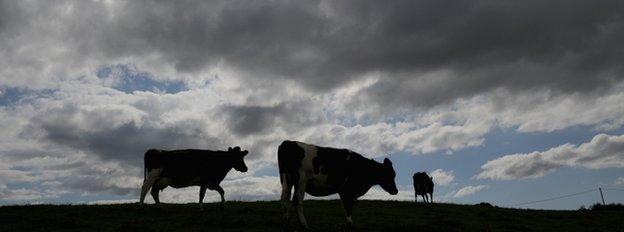
Dairy farmers are competing in a global market place and supply is exceeding demand
A Russian ban on imports, and a collapse in demand from China for dairy products, have played a part in the problem of falling milk prices, industry experts believe
At the end of March the European Union lifted its quotas on the amount of milk farmers could produce

Aldi, Lidl and Asda have since said they would pay a minimum price of 28p per litre. Morrisons will pay 26p per litre from later this month, and it has also launched a brand of milk and cheese which it says will directly support producers.
Waitrose, Marks & Spencer, Tesco, the Co-op and Sainsbury's say they already pay more than the cost of production for milk.
The industry estimates the average cost of production is 30-32p per litre.

What is the 'milk bucket challenge'?

By BBC environment correspondent Claire Marshall
This is the dairy farmers' version of the ice bucket challenge.
They say that milk is so cheap, they might as well just let it wash away.
The Farming Community Network has organised the milk bucket challenge in order to raise funds and awareness of the crisis in the milk industry, which has suffered months of price drops.
Caroline Trude, chairwoman of the Devon Federation of Young Farmers' Clubs, has helped to organise the challenges.
She told the BBC they poured about 800 litres (176 gallons) of milk over their heads during one challenge. This cost at least £240 to produce. However, at the current rate, farmers were only being paid about £184 on average for that amount from a processor.
Ms Trude said it raised the profile of the issue without disrupting the public.

Matthew Weaver took two cows into a branch of Asda in Staffordshire earlier this month.
He said he felt the support from customers had been "the driver for the success we've had so far".

John Allen, a dairy industry expert from Kite Consulting, said low prices meant farmers would go out of business but the market would then "self-correct".
"Probably next year we'll see a significant turnaround and consumers will have to be paying significantly more for their dairy product," he said.
The issue of milk prices in the UK will again be raised at a European Commission meeting next month.
- Published13 August 2015
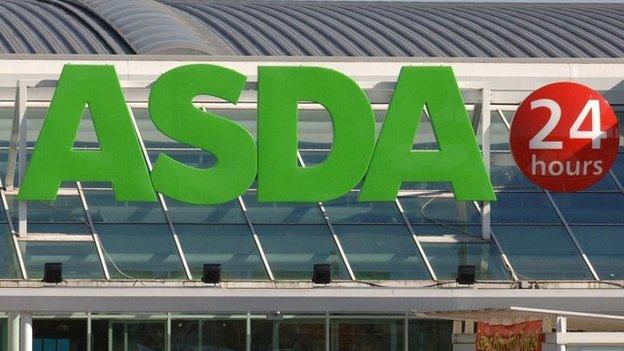
- Published11 August 2015
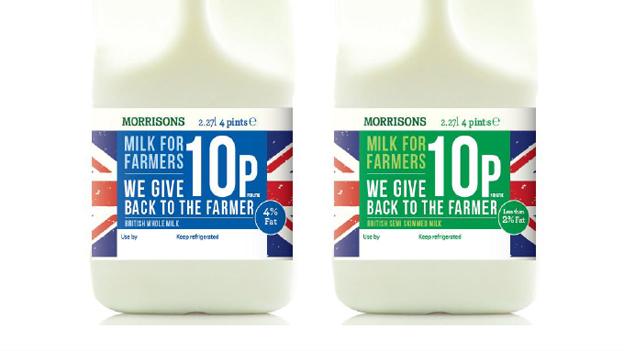
- Published10 August 2015
